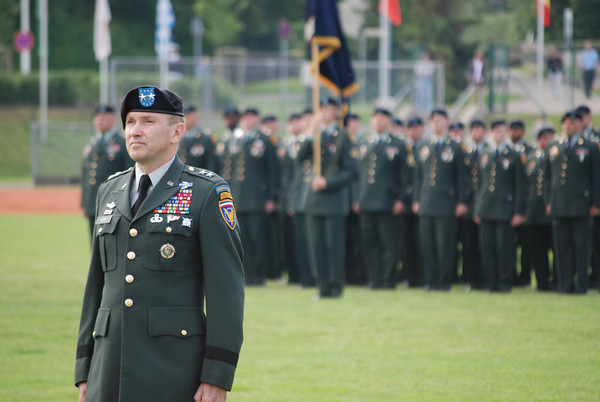
From Spencer Kimball, Deutsche Welle: According to Washington, radical Islam had replaced Soviet communism as the existential threat to American interests. To combat this new enemy, then-Defense Secretary Donald Rumsfeld initiated an exodus of US soldiers from historic posts in western Europe. But critics warned that the restructuring would undermine NATO’s ability to live up to its security responsibilities both inside and outside of Europe.
"The Rumsfeld plan … was the decision to reduce US force levels – then at 100,000 – down to 60,000," Ian Brzezinski told Deutsche Welle. Brzezinski, an analyst with the Atlantic Council, is a former US Deputy Assistant Secretary of Defense for Europe and NATO Policy.
"While the plan was being implemented, European Command weighed in … and said if we execute this plan we’re going to have trouble living up to currently defined responsibilities, including Article 5 responsibilities," he said.
Article 5 of the NATO treaty requires the Alliance to come to the aid of member-states if their territory comes under attack.
In response to the concerns expressed by commanders, Gates – Rumsfeld’s successor – put the plan on hold in 2007. However, newly announced budget cuts at the Pentagon could put troop reductions back on the table. Experts believe the changing role of NATO in a post-Cold War world will ultimately dictate the number and structure of US soldiers in Europe. …
Many Europeans are concerned that conventional territorial defense will fall by the wayside as America’s strategic eye gazes increasingly upon the Mideast and Central Asia. For the new NATO members, American troops continue to act as a hedge against what they see as Moscow’s unpredictable foreign policy.
"The nations that have been most concerned about the credibility of Article 5 are the Central Europeans," Brzezinksi said."People remember that Estonia had a cyber attack that originated in Russia, and which most believe was organized by the Russian government. …"
"Poland and the Baltic States have a stronger fear of Russia’s political influence and a possible confrontation," [the German Council on Foreign Relations’ Henning] Riecke said. "For them it remains very important that American troops are stationed in Europe. These are scenarios that are not at the top of the list of possible risks, but you can’t just sweep them under the carpet." (photo: David Robinson/EUCOM)
Image: eucom%203%206%2011%20EUCOM.jpg
